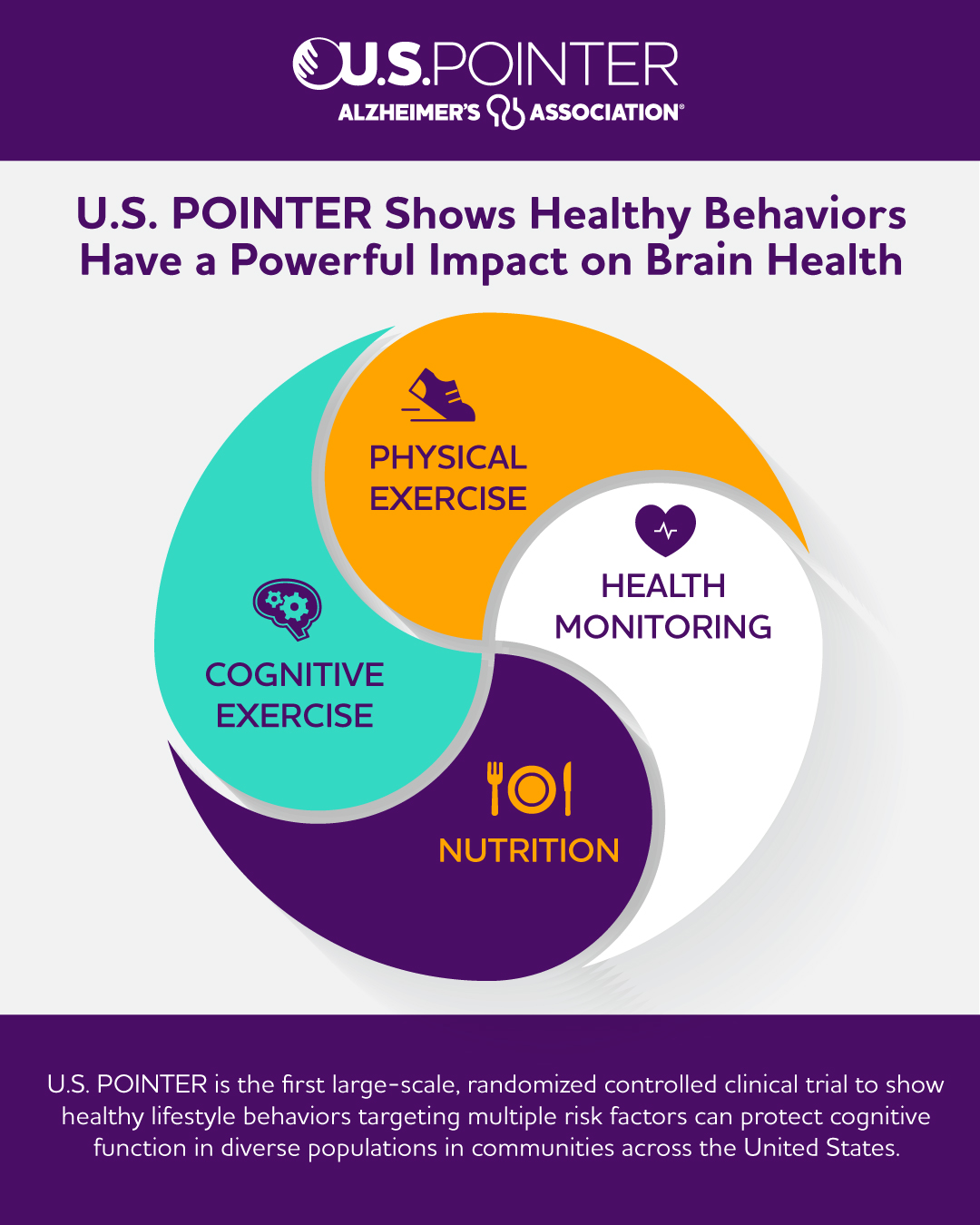The Alzheimer’s Association International Conference® 2025 (AAIC®) recently brought together researchers from around the world to share their discoveries. Thanks in large part to robust investments in dementia research from the public and private sector over the last decade, researchers are providing new insight into the many factors impacting brain health — from environmental risks and medication use to lifestyle and genetics.
Shared for the first time at AAIC 2025, the Alzheimer’s Association U.S. Study to Protect Brain Health Through Lifestyle Intervention to Reduce Risk, known as U.S. POINTER, found that a structured lifestyle program — focusing on things like improved nutrition, physical exercise, cognitive engagement, and health monitoring — improved thinking and memory over two years, keeping brain function from declining as it normally would with aging. Participants in the structured program performed like people who were one to almost two years younger, suggesting that these habits can help the brain stay resilient against age-related changes.
U.S. POINTER is the first large-scale, randomized controlled clinical trial to demonstrate that an accessible and sustainable healthy lifestyle intervention can protect cognitive function in diverse populations in communities across the United States. Both of the lifestyle interventions in U.S. POINTER improved cognition in older adults at risk of cognitive decline. The cognitive benefits, however, were greater for the structured intervention than for the self-guided intervention.

These findings will transform the way our country approaches brain health. Until now, there was evidence emerging to suggest that positive everyday actions could protect brain health, but there was a lack of rigorous data in representative populations that proved a connection. Thanks to U.S. POINTER, we can confidently say that simultaneously targeting risk factors for cognitive decline can improve brain health.
The results present a compelling case for investments in preventive brain health programs targeting nutrition, physical exercise, cognitive stimulation and cardiovascular wellness. This is not only a brain health issue — it is an economic imperative. Reducing cognitive decline could help reduce future care costs and support healthy, productive aging.
The Alzheimer’s Association and AIM are urging policymakers to support funding, legislation, and public health initiatives that bring these proven brain health interventions into more communities. We stand ready to collaborate on solutions to protect our nation’s brain health.
Read the Association’s release on the U.S. POINTER results.
Learn more about the scientific progress being made thanks to the investments made in Alzheimer’s and dementia research.
